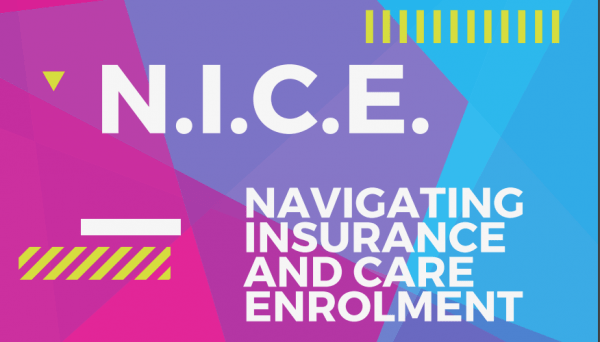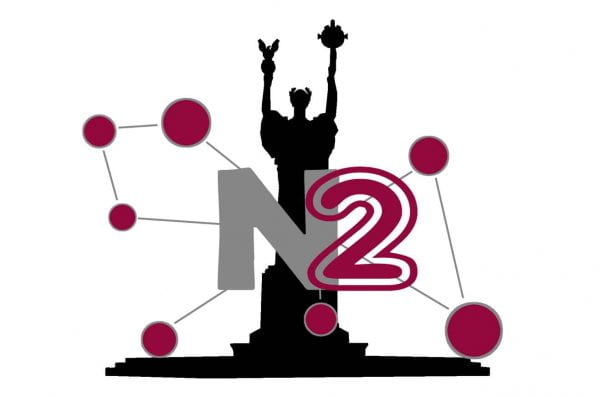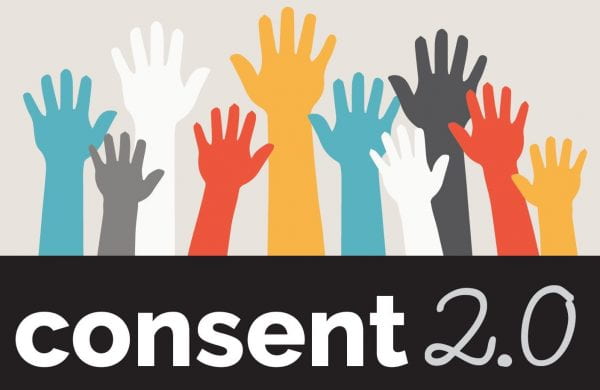Past Research
Building Agent Based Models of Racialized Justice Systems (BARS)
This study uses a modeling approach to estimate the effectiveness of HIV prevention interventions for criminal justice involved black men who have sex with men (BMSM). Because of frequently transient life circumstances, disruption of social and sexual networks, and HIV transmission overlap with other risk groups, criminal justice involved (CJI) BMSM represent an important intervention target. Research to determine intervention impact at these larger social units does not readily lend itself to study via the randomized control trial approach. Utilizing local and national data sources, we will parameterize an Agent Based Model to assess the interplay between social and behavioral factors and viral and host factors adaptive to temporal, network and setting-specific changes on HIV transmission dynamics. The study also involves collecting new data on network shocks and HIV service utilization during critical transition periods of BMSM from the community, to jail, and back to the community/supervision, which will be used to inform model parameters. For more information, please contact Jeannette Webb at jwebb9@medicine.bsd.uchicago.edu
ITM
This study aims to qualitatively identify common factors in cisgender women newly diagnosed with HIV and missed opportunities prior to diagnosis in those same women for PrEP linkage.
Aim 1: Identify commonalities among women with recent HIV diagnoses.
Aim 1a: Qualitatively assess common factors among women recently diagnosed with HIV (n=30) about potential intervention points and missed opportunities for PrEP linkage.
Aim 1b: Evaluate existing quantitative data sources (EMR, open source) for common factors among women with recent HIV diagnoses.
Aim 2: Develop an implementation plan for utilization of the refined automated identification of HIV-negative, PrEP-eligible women in the ED.
For more information, please contact Sam Devlin at sdevlin1@bsd.uchicago.edu
W2P COVID Supplement
Work2Prevent aimed to advance the science by adapting, tailoring, and pilot-testing a novel social and structural-level HIV intervention for YMSM and YTW of color ages 16-24 aimed at increasing economic stability (i.e.,employment) through youth empowerment and asset development, and decreasing HIV risk behaviors(i.e.,sexwork) associated with social and economic marginalization. The COVID supplement will assess the impact of COVID on employment after 1 year of the COVID-19 pandemic. Study outcomes include: (1) job seeking self-efficacy and readiness; (2) employment; and (3) COVID-related attitudes and beliefs.
For more information please contact MicKayla Jones at mxjones@medicine.bsd.uchicago.edu .
R03
This study aims to qualitatively identify common factors in cisgender women newly diagnosed with HIV and missed opportunities prior to diagnosis in those same women for PrEP linkage.
Aim 1: Identify commonalities among women with recent HIV diagnoses.
Aim 1a: Qualitatively assess common factors among women recently diagnosed with HIV (n=30) about potential intervention points and missed opportunities for PrEP linkage.
Aim 1b: Evaluate existing quantitative data sources (EMR, open source) for common factors among women with recent HIV diagnoses.
Aim 2: Develop an implementation plan for utilization of the refined automated identification of HIV-negative, PrEP-eligible women in the ED.
For more information, please contact Sam Devlin at sdevlin1@bsd.uchicago.edu
LAI-ART
Long-acting injectable antiretroviral therapy study addresses the need to identify LAI-ART implementation strategies across patient, provider, and clinic/systems contexts using a mixed-methods, multi-level study structured by the Consolidated Framework for Implementation Research (CFIR) with the goal of creating a care delivery model that optimizes real world use.
For more information please contact Rey Flores at reyflores@medicine.bsd.uchicago.edu
ETHIC
The goals of ‘Ending transmission of HIV, HCV, and STDs and overdose in rural
communities of people who inject drugs’ (ETHIC) are to:
- Determine the geographic areas in the rural Illinois Delta Region at greatest risk for opioid misuse and infectious diseases in the IDR based on disease surveillance, healthcare utilization, prescription drug monitoring, arrest and drug seizure, and resource scarcity using epidemiological analysis and GIS hot-spot mapping.
- Understand how sociocultural factors impact risk and health-seeking behaviors, social networks, and disease transmission of people who inject drugs in the IDR.
- Integrate and apply the epidemiological, geospatial, qualitative and network data to inform expanded harm-reduction services and targeted telehealth capacity building for related clinical care.
- Expand harm reduction services (HRS) including syringe services, naloxone overdose prevention, substance use treatment referral, HIV, HCV, and STD testing and referral and linkage to care through capacity building of existing programs.
For more information please contact Christian Johnson at cjohnson5@medicine.bsd.uchicago.edu .
P2M
The Phylodynamics-targeted Partner service Models (P2M) project aims to guide and transform the rapidly evolving public health implementation of molecular HIV surveillance (MHS) based prevention interventions as a critical step towards HIV elimination. P2M will expand an established partnership between a trans-disciplinary academic team and local health departments to evaluate next generation public health approaches that will more effectively target combination prevention to limit endemic spread of HIV and prevent future outbreaks.
For more information please contact Rey Flores at reyflores@medicine.bsd.uchicago.edu
BARS Supplement
To consider how opioid use patterns develop and evolve among YBMSM, we will conduct life course interviews with YBMSM and transwomen in Chicago who have a history of criminal justice involvement.
Contact person: Jeannette Webb
Center for Prevention Implementation Methodology for Drug Abuse and HIV (Ce-PIM)
Under the direction of Dr. C. Hendricks Brown, the Center for Prevention Implementation Methodology for Drug Abuse and HIV (Ce-PIM) works to improve population health through implementation science. Ce-PIM is the only NIH center fully focused on methodology development for the field of implementation science. They pay special attention to addressing disparaties by developing methods that improve the health of minorities and underserved communities.
The BARS project is CCHE’s qualifying R01 grant that is a major focus of Ce-PIM. Ce-PIM aims to extend the capability and capacity of BARS through implementation science. We will use our jail model from 3 cities to develop candidate interventions as well as evaluate existing interventions. The goal is in future phases of BARS to utilize implementation science to develop best strategies for eliminating HIV and other STI transmission among YBMSM.
For more information on Ce-PIM, their mission, aims, research focus, and services/resources provided, please visit their website.
StepUp TestUp
The purpose of this study is to assess the feasibility, acceptability and test the initial efficacy of electronic screening and brief intervention (eSBI) for alcohol use couples with “Seek, Test, Treat, Retain” HIV prevention model (STTR; intervention) in comparison to STTR only (attention control) among young men who have sex with men (YMSM) and young transgender women (YTW) in community-based HIV testing environments in Chicago and to assess and describe intervention effects on substance use as well as engagement within the HIV and PrEP care continuum. We will do this with the following aims:
1. Assess the feasibility, acceptability and intial efficacy of electronic Screening & Brief Intervention + Seek, Test, Treat and Retain (eSBI + STTR) compared to STTR-only to reduce alcohol and other substance use among 450 YMSM and YTW in Chicago, ages 16-25.
2. To explore the initial efficacy of eSBI+STTR in comparison to STTR-only on secondary exploratory outcomes within the HIV and PrEP care continuum among YMSM and YTW.
3. Determine the degree to which sub-groups of youth are differentially impacted by eSBI+STTR based on socio-demographic characteristics and co-morbid mental health problems to inform future targeting and/or tailoring of the intervention.
For more information, please contact Jared Kerman at jkerman1@medicine.bsd.uchicago.edu
MARI
Content to follow. For more information, please contact MicKayla Jones at mxjones@medicine.bsd.uchicago.edu.
NICE
The goal of this study is to explore the impacts of in-person insurance enrollment assistance on HIV care linkage, retention, and insurance uptake. This study will recruit participants frequenting social, political, community-based, and healthcare venues serving men who have sex with men (MSM) and help enroll them in health insurance through Medicaid or the Illinois Marketplace. Results from this study will inform future HIV prevention strategies by illustrating if/ how insurance enrollment should be involved with routine HIV outreach and care. Financial support for this study is provided by the Centers for Disease Control and Prevention (CDC).
For more information, please contact Keyira Jones at Kjones52@medicine.bsd.uchicago.edu.
N2
The study, entitled “PrEP Uptake and Adherence Among Young Black MSM: Neighborhood and Network Determinants” is a behavioral study. The study goals and aims and other study-related information are described in detailed below.
Study Goals
The Specific Aims for this project are:
Specific Aim 1: Determine the relationship between neighborhood-level factors based on GPS-defined activity space neighborhoods (e.g. poverty, HIV prevalence and access to healthcare services, our primary predictors) and pre-exposure prophylaxis (PrEP) uptake and adherence
Specific Aim 2: Characterize the relationship between social and sexual network characteristics (e.g. network size, frequency of communication with network members, and material support, our primary predictors) and pre-exposure prophylaxis (PrEP) uptake and adherence
Specific Aim 3: Identify interactive effects of neighborhoods and social and sexual networks on pre-exposure prophylaxis (PrEP) uptake and adherence
For more information, please contact KangKana at
Project nGage
The goal of this project is to test a social network intervention aimed at improving (or maintaining) engagement in HIV care among adolescent and younger adult Black MSM and transgender patients. The social network intervention includes recruitment of individuals from the social network that serve a supportive function and motivate these individuals to drive adherence to HIV primary care: retention to clinic appointments and adherence to antiretrovirals. This study is a randomized trial funded by the National Institutes of Health. For more information contact Alida Bouris at abouris@uchicago.edu
uConnect
The goal of this project is to examine features of younger Black MSM’s social networks that are most amenable to bio-behavioral intervention. The purpose of the study is to learn how social and sexual networks affect men’s beliefs, attitudes, behaviors, and physical and mental health related to risk of sexually transmitted infections (STIs) including HIV/AIDS. Social network analysis will be longitudinal over a two year follow-up assessment to determine dynamic features of the network. This work is supported by the National Institutes of Health. For more information contact Britt Livak at brittsl@uchicago.edu.
Project Ready
The aim of Project Ready is to better understand the HIV prevention needs of African American and Latino young men who have sex with men and transgender women between the ages of 13 and 19. Utilizing insights from minority stress theory, syndemic theory, and theories of risk and resilience, the study seeks to better understand the contextual risk factors that shape the psychosocial and sexual health outcomes of sexual minority youth of color. The study is supported by the Institute for Translational Medicine (ITM), the STI/HIV Intervention Network (SHINE) and the Center for Health Administration Studies (CHAS). For more information contact Kimberly Fisher at kfisher@medicine.bsd.uchicago.edu.
Sustainable Health Center Implementation PrEP Pilot (SHIPP)
This PrEP feasibility project aims to determine which strategies are most effective for engaging community members and health care providers in the use of pre-exposure prophylaxis in resource restricted settings such as on the South Side of Chicago. Howard Brown Health is the site of the study and is a Federally Qualified Health center that will be the target of this intervention. This project is supported by the Centers for Disease Control and Prevention. For more information contact John Schneider at jschnei1@medicine.bsd.uchicago.edu.
Transmission Reduction Intervention Project (TRIP)
TRIP is an innovative multi-city initiative that targets individuals and members of their social networks who are at heightened risk of HIV infection to prevent or treat transmission of HIV and other sexually transmitted diseases. This intervention uses powerful treatment as prevention by identifying and treating newly infected persons rapidly post-infection. The study will locate newly or acutely infected community members and employ contact tracing and community alerts, so that individuals with an untreated infection can exercise special caution with sex or injection drug use partners during a period of heightened risk. TRIP seeks to provide a protocol that can benefit the distinct but sometimes overlapping risk groups of injection drug users, non-injection drug users, and men who have sex with men. The study takes place in three urban centers that have large HIV epidemics: Odessa, Ukraine; Athens, Greece; and Chicago, USA. For more information contact Billy Davis at bdavis1@medicine.bsd.uchicago.edu.
Young Men's Affiliation Project (YMAP)
The Young Men’s Affiliation Project (YMAP) is a two-city study (Chicago and Houston) that will utilize methods of social network analysis to better understand the affiliation between young men who have sex with men (YMSM) and the social spaces they frequent. These spaces can be broadly conceptualized as venues where there may be increased risk of HIV transmission (“risk venues”) or protective spaces that such as clinics and community-based organizations that provide HIV prevention services. This work is supported by the National Institutes of Health. Click here to view the study’s Data Dictionary. For more information, please contact Rebecca Eavou at reavou@medicine.bsd.uchicago.edu.
PrEP R
This goal of this project is to refine and pilot test a flexible PrEP Retention (PrEP-R) intervention that leverages organic social support network members of HIV-negative young Black men who have sex with men (YBMSM) to improve retention in PrEP care. While data exist for YBMSM on PrEP linkage, receipt, and adherence, there is a lack of empirically tested interventions on a key intermediate step: retention in PrEP care. Several existing strategies seek to address challenges to retention in HIV care, including case management, peer health navigation, and multi-modal programs. These efforts all rely on newly created network members, a traditional public health approach. What is often missing in these strategies is a coordinated attempt to harness organic social support networks. Our use of “organic” refers to a naturally existing social support network, which is distinct from newly generated support persons, e.g., assigned peer navigators or case managers. The concept of organic social support as a powerful force in the health of HIV infected persons is well documented, but has been underutilized to retain YBMSM in PrEP care. However, sexual minorities are often stigmatized and need persistent, deep, and ongoing social support, the kind that is often only available from existing confidants—friends, kin, and other persons—with whom one might share personal information and be influenced by. Flexibility of PrEP-R ensures that a support confidant (SC) is selected based on factors such as providing a supportive function (e.g., emotional support) as opposed to their status (e.g., mother). Such SCs are likely important not only to retention in PrEP care, but also to sustained health maintenance, risk reduction behavior maintenance and long-term adherence to PrEP. We have developed a brief, theoretically-grounded, culturally-sensitive PrEP-R intervention that (1) utilizes social support network visualization and network theory to help YBMSM safely identify a SC to engage in retention in PrEP care activities; (2) uses an Information-Motivation-Behavioral Skills Model targeted at the SC to activate and maintain PrEP-specific social support in the dyad; and (3) a linked PrEP-specific social support conceptual model to then drive appointment adherence among index YBMSM. Our primary aims are to: (1) Refine PrEP-R intervention protocol, materials and assessments by (1) shifting more of the intervention to focus on the SC through individual and dyadic sessions; and (2) developing a systematic procedure to generate social support of the client by engaging the SC via mini-booster cell phone sessions; and (2) Pilot test the feasibility (reach, adoption, and implementation) and initial efficacy (number of 3-month periods with 1 completed visit) of the PrEP-R intervention versus standard linkage to care at 12-months post randomization among a sample of 160 YBMSM ages 18-29. Secondary outcomes to be assessed include self-efficacy, social support, HIV/STI testing frequency and maintenance of health insurance. Secondary outcomes include self-efficacy, social support, HIV/STI testing frequency, and health insurance maintenance. This pilot study will provide objective data in support of our next step: an adequately powered RCT testing the effectiveness of PrEP-R to promote retention in PrEP primary care versus treatment as usual. For more information, please contact Olivia Blocker at oblocker@medicine.bsd.uchicago.edu.
Consent 2.0
Content to follow. For more information, please contact Santhoshini Ramani at sramani@medicine.bsd.uchicago.edu.
WERK
Project WERK (Wellness, Encouragement, Respect, and Kinship) in a randomized control trial that seeks to determine the feasibility and initial efficacy of a social support network intervention on retention in Pre-Exposure Prophylaxis (PrEP) care for young Black men who have sex with men (YBMSM). We consented 209 YBMSM into Project WERK, participants were then randomized to either the experimental arm or the control arm. In the control arm, participants receive prep care as usual, which follows the current CDC guidelines for PrEP clinical care, including scheduling visits for clients every 3 months, and is practiced within our network of PrEP providing clinics. In the experimental arm, participants are asked to identify and engage a close friend or family member (support confidant or SC) who can support them their PrEP Care. The Index and SC participants complete an intervention session together to develop a Care and Support Plan, and they receive four booster calls/texts over the course of 12 months. All Indexes and SCs complete a baseline, 3-, and 12-month survey. Project WERK is no longer recruiting, the project is currently completing 3- and 12-month surveys. We anticipate data collection will be completed in June 2020.. For more information, please contact Olivia Blocker at oblocker@medicine.bsd.uchicago.edu
SPECTRUM
Spectrum is a study that seeks to better understand the reasons that young men who have sex with men (YMSM) use marijuana. In collaboration with DePaul University, we administered a cross-sectional close-ended survey to 50 HIV-positive and 50 HIV-negative YMSM in Chicago, IL and Denver, CO. The survey seeks to explore the distribution of cannabis motives in these groups, analyze multi-level factors associated with daily cannabis use in both groups, and estimate the effects of multi-level factors and cannabis use on key indicators of the HIV care continuum. These data will be examined to better understand how cannabis motives may be differentiated among HIV- YMSM and HIV+ YMSM, and provide preliminary data for a future longitudinal study of cannabis use and HIV+ YMSM across the HIV care continuum. Spectrum is currently in the analysis stage.. For more information, please contact Olivia Blocker at oblocker@medicine.bsd.uchicago.edu
PS-PrEP
Content to follow. For more information, please contact name at email.
PrEP Chicago
The goal of this project is to use social media, such as Facebook, to provide a forum for discussion about PrEP, for adolescents and young adults who may be interested and eligible for PrEP care. Not many individuals who are appropriate candidates for PrEP even know about PrEP; of those who do, few have formed attitudes about it and even fewer have engaged their health care providers around PrEP. This is the first effort to impact the PrEP cascade by fostering knowledge and for those who are interested activating linkage to care. For more information please visit https://www.facebook.com/groups/prepchicago/ or contact Dr. Lindsay Young at lyoung1@medicine.bsd.uchicago.edu.
Partner Services PrEP (PS-PrEP)
This project seeks to test the efficacy of an enhanced linkage to Pre-Exposure Prophylaxis (PrEP) care intervention for HIV negative individuals. PS-PrEP, a collaboration between CCHE and the Chicago Department of Public Health, seeks to innovate traditional HIV prevention methods by combining one of the oldest public health interventions, contract tracing, with the latest biomedical prevention tool, Pre-Exposure Prophylaxis (PrEP). The intervention attempts to increase PrEP knowledge, social support, and motivation to reduce HIV risk among participants, by collaboratively identifying and addressing barriers to linkage and retention in PrEP care. This study is a randomized controlled trial funded by the National Institute of Mental Health. For more information contact Olivia Blocker at oblocker@medicine.bsd.uchicago.edu.
SOPHOCLES and P4
In response to the recent HIV epidemic among people who inject drugs (PWID) that began in Athens following austerity measures in 2010, this intervention attempts to model a targeted, network-based, public health Pre-Exposure Prophylaxis (PrEP) intervention. Building upon recent phylogenetic and surveillance analysis identifying network members who “bridge” PWID and MSM communities, this study will map these bridging networks, measure early PrEP outcomes (ie. PrEP linkage-to-care), and model the effects of a targeted public health PrEP intervention on HIV transmission in Athens. Given the limited resources for public health interventions, it is our hope that model-based analyses such as these can identify and test intervention strategies in order to maximize the impact on emerging and reemerging HIV epidemics globally. For more information, please contact Dr. John Schneider at jschnei1@medicine.bsd.uchicago.edu.
ETHIC UH3
The ETHIC UH3 study focuses on the relationship between HIV, HCV, and STD transmission and overdose in people who inject drugs (PWID) in rural communities of Illinois. This project will utilize both social network data and blood sampling data to estimate incidence rates in conjunction with estimating the network itself with a goal of exploring the network role in HCV transmission, including an examination of independent risk factors for transmission. Goal of this study is to: 1) Determine the geographic areas in the rural Illinois Delta Region (IDR) at greatest risk for opioid misuse and infectious diseases; 2) Understand how sociocultural factors impact risk and health-seeking behaviors, social networks, and disease transmission of PWID in the IDR; and 3) Integrate data to inform expanded harm-reduction services and targeted telehealth capacity building for related clinical care. For more information, please contact Jerel Ezell at jerel@uchicago.edu
Secunderabadi Men's Study (SMS)
The Secunderabadi Men’s Study (SMS) uses a hybridized cell phone and survey generated communication network to identify key places in the risk network where information can be passed and transmission interrupted. This study takes place in Hyderabad, India within an emerging HIV epidemic among MSM and transwomen and is in partnership with the Public Health Foundation of India. This study is supported by the National Institute of Allergy and Infectious Diseases. For more information contact Dr. John Schneider at jschnei1@medicine.bsd.uchicago.edu.
Get Tested
When was the last time you had an HIV or STI test? We can help you find somewhere to get tested.











